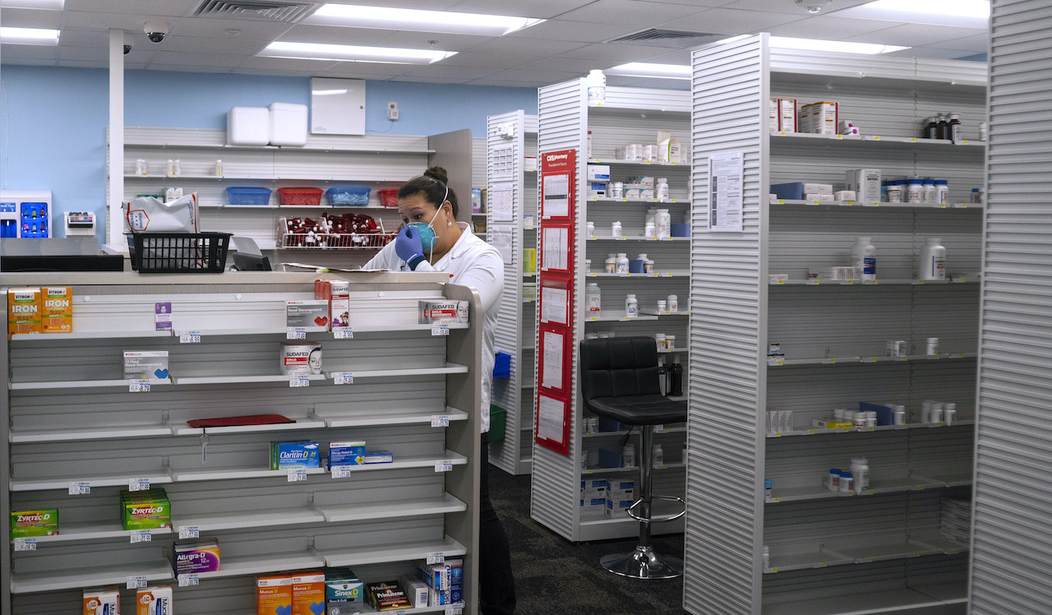In 2005, when Congress debated the Medicare Modernization Act, Rep. Henry Waxman, D-Calif., wanted to cap premiums for Part D – the federal prescription drug benefit created in that legislation – at $41 per month.
He argued that $41 was a little higher than insurers indicated they would charge at the time, but it would prevent the huge price increases he was sure would follow.
Of course, Waxman could not have been more wrong. Premiums were in the low-$30s as late as 2019 and didn’t reach the level he suggested until the last two years. Part D has been the rare government program that came in significantly below budget projections for years on end.
Government meddling had been resisted—both Waxman’s efforts to set the price and others' efforts to have the government negotiate the price of drugs—to the significant benefit of Part D participants and the federal budget.
But the gravy train has ended. The government has become involved both in price fixing and excessive taxation to fund its green energy boondoggles, and the price of prescription drugs for Americans is going up.
Premiums for 2024 average $48, a 21% increase in one year. The Council for Affordable Health Coverage says premiums could skyrocket another 50% in the next year. Nearly two decades of stability, and now an explosion in prices and a $3 billion-per-year new federal bureaucracy to continue to meddle in America’s prescription drug industry in a way that benefits big insurance companies but not the companies that develop life-saving drugs and certainly not consumers.
The problem is that President Biden’s Inflation Reduction Act has been anything but. It has not reduced inflation meaningfully—the rate is still more than twice as high as when Biden took office—but it has shuffled billions of taxpayer dollars to various administration friends, including $300 billion shifted from Medicare to green boondoggles, which is part of the reason drug prices have climbed.
Recommended
A number of conservative groups – many of which focus on health care or seniors issues – have joined a letter to the Republican leaders of Congress – Speaker Mike Johnson in the House and Senate Minority Leader Mitch McConnell – to ask them to prioritize efforts to repeal the Inflation Reduction Act or, failing that, to at least address the drug pricing provisions.
The letter states that the Inflation Reduction Act has not lived up to its name because much of what it has done—Green New Deal spending, tax credits to benefit China, electric vehicle giveaways , and big handouts to insurance companies—has fueled inflation. It said the $300 billion moved to green energy projects should have been used to extend the life of the program and keep premiums low.
The letter pointed to surveys that show Americans say drugs have been harder to get since the legislation has passed and that two-thirds say the legislation hasn’t helped them at all. It traces the sad history of imposing price controls on drugs and how the entirely predictable results of those actions have not helped American seniors, as promised, but actually made their lives harder.
It pointed to the changes in Part D—premiums up sharply with more increases to come, fewer drug plans available, and less innovation, which gives Americans the first crack at the newest drugs and treatments.
“History shows that price controls never achieve their stated ends, and the IRA’s price controls are further evidence,” the letter states.
Waxman’s prediction was off because he lost the battle to set the rates and to have the government negotiate drug prices. Our government doesn’t really negotiate drug prices. In a negotiation, both parties can walk away if the terms aren’t favorable. When the government negotiates drug prices, the penalty for walking away from the government’s final offer is a 95% tax on that drug maker’s medicines.
The Biden administration’s efforts to build the economy by throwing trillions of taxpayer dollars at it have not produced the given results, the letter states. Maybe it’s time to eliminate the price control board, let drug plan operators and drug companies go back to working out deals, and get the prices down to where they were when Biden took office.
The market approach was working just fine. As the price hikes in Medicare Part D tell us, something is not right about the current approach. The groups have recognized that it’s time to return to the old rules. They were working better.

























Join the conversation as a VIP Member